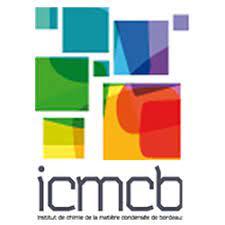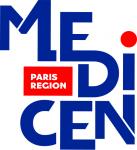Development of heavy-metal-oxide glass fiber lasers for the mid-infrared optical window
| ABG-130733 | Thesis topic | |
| 2025-04-09 | Public funding alone (i.e. government, region, European, international organization research grant) |

- Materials science
- Chemistry
Topic description
The mid-infrared (MIR) optical domain, supporting the fundamental vibrational modes of various biological and organic compounds, has garnered significant interest from both academic and industrial sectors, particularly for military, environmental, and medical applications. Within the fiber optic community, the MIR optical window spans from 2.5 to 20 μm, with only a few families of inorganic non-metallic glasses suitable for exploitation, such as heavy-metal-oxide, halide, and chalcogenide-based glasses.
For over a decade, a strong collaboration between the University of Bordeaux and Laval University (Quebec, Canada) has driven the development of robust heavy-metal-oxide glasses, specifically germano-gallate glasses. This partnership has resulted in several milestone achievements, including the fabrication of low-loss fibers, supercontinuum generation, and the ultrafast inscription of laser waveguides. This doctoral project, situated at the intersection of research and development, aims to achieve the first demonstration of efficient mid-infrared fiber lasers based on germano-gallate glass fibers. The project will be conducted as a cotutelle, with the candidate splitting their time between ICMCB in France and COPL in Canada. These laboratories represent a select group of institutions worldwide with the expertise to cover the entire process of fiber-based device creation, from fundamental fiber fabrication to integration into complex optical systems.
Throughout the PhD, the candidate will conduct an in-depth study of glass composition, synthesizing glass via melt-quenching, drawing fibers using the preform-to-fiber method, and characterizing both the fibers and glasses using a range of spectroscopic, thermal, and mechanical analyses. In collaboration with LumIR Lasers company, the candidate will also optimize fiber design through numerical simulations and practical experiments.
Main aspects developed during the project:
Synthesis of new compositions of heavy oxide glasses and purification of materials
Fiber drawing of materials for infrared and mid-infrared.
Physicochemical and structural characterizations (Raman, NMR, luminescence, AFM, Electron microscopies: SEM, TEM, EDS, Auger).
Optical characterizations and laser functionality tests.
Starting date
Funding category
Funding further details
Presentation of host institution and host laboratory
Within the scope of a joint research program in the field of materials and photonics between the University of Bordeaux in France and Laval University in Quebec, the ICMCB laboratories in Bordeaux and the COPL in Quebec offer funding for a PhD in joint supervision between France and Canada (double degree). This program is part of an International Research Project (IRP-CNRS) LuMAQ between the two countries. The IRP offers an institutional framework to promote the exchange of people (students and researchers) and the initiation of ambitious research projects between partners.
Current advances in the field of optics and photonics require the development of innovative optical fibers for applications ranging from light sources to sensors or diagnostic devices for health. The objective of the program is to develop multifunctional optical fibers based on special glasses. The project, in an international environment, includes the preparation of materials, the study of their optical properties and the manufacture of novel optical fibers.
This research project concerns the field of new materials and new fibers for infrared. This type of technology targets different domain such as telecommunications, security and health.
This concerted IRP LuMAQ initiative provides to doctoral students and researchers a leading scientific environment in the rapidly growing field of photonics by providing to the participants a mobility program adapted to an international research program. More specifically, the project is part of a Franco-Quebec program supported by the Aquitaine region in 2024 called EXOGLASS and coordinated by Thierry Cardinal.
PhD title
Country where you obtained your PhD
Institution awarding doctoral degree
Graduate school
Double degree
YesCountry where the PhD was obtained in cotutelle
Establishment awarding the doctorate in cotutelle
Candidate's profile
Candidate profile
The candidate should have background in inorganic chemistry and materials science. The candidate should have also interest in optics, photonics, and laser technology, and excellent analytical skills. Proficiency in relevant software, problem-solving skills, and effective communication abilities in both English and French are also required.
Vous avez déjà un compte ?
Nouvel utilisateur ?
Get ABG’s monthly newsletters including news, job offers, grants & fellowships and a selection of relevant events…
Discover our members
 Institut Sup'biotech de Paris
Institut Sup'biotech de Paris  ASNR - Autorité de sûreté nucléaire et de radioprotection - Siège
ASNR - Autorité de sûreté nucléaire et de radioprotection - Siège  TotalEnergies
TotalEnergies  SUEZ
SUEZ  Medicen Paris Region
Medicen Paris Region  Nokia Bell Labs France
Nokia Bell Labs France  Aérocentre, Pôle d'excellence régional
Aérocentre, Pôle d'excellence régional  Tecknowmetrix
Tecknowmetrix  Laboratoire National de Métrologie et d'Essais - LNE
Laboratoire National de Métrologie et d'Essais - LNE  ONERA - The French Aerospace Lab
ONERA - The French Aerospace Lab  Généthon
Généthon  ADEME
ADEME  Ifremer
Ifremer  Groupe AFNOR - Association française de normalisation
Groupe AFNOR - Association française de normalisation  Servier
Servier  Nantes Université
Nantes Université  ANRT
ANRT
